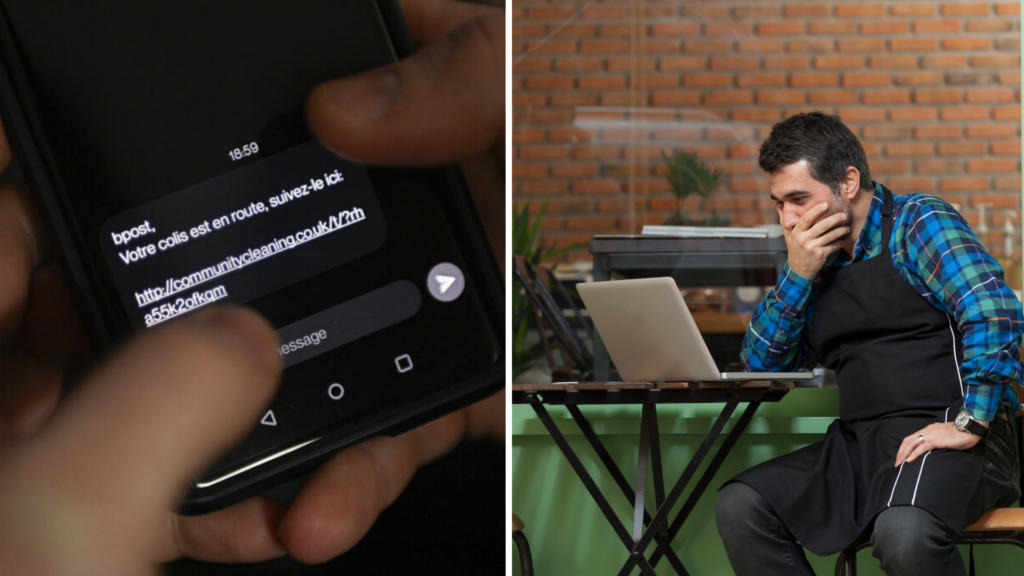Some 86% of Belgians have been targeted by phishing scams with the average amount stolen by fraudsters being €860. But of the victims who report phishing scams to the police, fewer than 1% get their money back.
A survey by consumer rights organisation Test Achats has found that 86% of Belgians have been confronted with at least one phishing attempt. This can range from a person promising a large inheritance to pretending to be a family member or romantic partner, or a charity.
Some 60% of incidents related to fraud or scams involving money. In around one-third of cases, money was actually stolen or paid by the victim. The average amount of money lost to a phishing scam was €860.
Only half of phishing victims sought help, with the other half thinking they could handle the situation on their own, according to Test Achats.
'Mixed results' going to police
Just 30% of phishing victims turned to the police, with mixed results.
Of those who did go to the police about fraudulent activity, 50% were informed that their complaint would be investigated but heard nothing more afterwards, or were informed that it was closed.
Some 14% were informed that nothing could be done in their case, or that their file would not be investigated. Meanwhile, 9% of them never heard from their complaint again.
Less than 1% (0.7%) of the people who went to the police were able to recover the stolen money.
Test Achats said that a lack of information may be the reason why so few people seek help when they experience phishing scams.
Only 54% of respondents consider themselves sufficiently/well informed, and only 37% have access to clearly defined procedures on how to handle such incidents.
Only 24% of respondents believe social media platforms are doing enough to protect their users from cybercrime, and just 35% believe law enforcement is doing an effective job of combating cybercrime.
Need for fraud hubs
Test Achats and its umbrella organisation Euroconsumers are advocating the creation of national contact points to help victims of scams.
The centres would serve as a single, coordinated point of assistance, working closely with law enforcement, victim support networks, banks, telecom operators and online platforms. Their aim would be to help victims recover stolen funds, provide them with psychological support and ensure that they have a clear idea of where to seek help when faced with a scam.
"Instead of leaving victims to juggle various stakeholders – police, banks, online platforms, telecom operators, etc. – in a solitary journey to obtain help and redress, we are calling for a single point of assistance. This would provide the specialist approach that victims of fraud need, including to deal with the shame and emotional impact that often accompany fraud," said Julie Frère, spokesperson for Test Achats.

